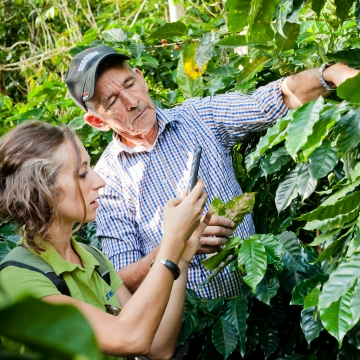
2nd Annual CECFEE Workshop, 15th-16th October 2016
A workshop was organized by the Centre along with the Environment for Development Initiative (EFD) of the University of Gothenburg on October 15th and 16th at Ranthambhore. There were presentations…


A workshop was organized by the Centre along with the Environment for Development Initiative (EFD) of the University of Gothenburg on October 15th and 16th at Ranthambhore. There were presentations…

AGENDA Monday, November 2, 2015 Morning Introduction and Welcome – E. Somanathan About EfD – Gunnar Kohlin, University of Gothenburg Credit, LPG Stove Adoption and Charcoal Consumption: Evidence from…
Understanding the motivations behind people’s voluntary contributions to public goods is crucial for the broader issues of economic and social development. By using the experimental design of Fischbacher, Gächter, and Fehr (2001), we investigate the distribution of contribution types in two developing countries with very high collectivism rating – Colombia and Vietnam – and compare our findings with those previously found in developed countries.
Public goods provision is essential for economic development. Yet there is limited evidence regarding contributions to local public goods in developing countries. This article analyses a field experiment where all 200 households in a village in rural Vietnam make real contributions to a public good that is very important for them in daily life—a bridge. We study the role of social influence (that people may be more willing to co-operate if others do) and the effects of the default alternative in the choice situation.
We measure people's pro-social behavior, in terms of voluntary money and labor contributions to an archetypical public good, a bridge, and in terms of voluntary money contributions in a public good game, using the same non-student sample in rural Vietnam at four different points in time from 2005 to 2011. Two of the observed events are actual voluntary contributions (one in terms of money and one in terms of labor), one is from a natural field experiment, and one is from an artefactual field experiment.
This study measures the public preferences for cultivated land protection as a case study of Wenling City, China, using the choice experiment (CE) approach. The estimation results indicate that the most important attribute for cultivated land protection in Wenling City was land facility, followed by land fertility and then by landscape improvement.
Understanding market competition and consumer preferences are important first steps in developing a business. In a competitive market, the effectiveness of the various elements of a firm's marketing mix depends not only on the absolute value of each element but also on the relative values of the elements with respect to the firm's position in the market. In this paper, we analyze the demand structure and market positions of a variety of seafood products in the French retail market. We used a labeled choice experiment to analyze 12 seafood species.
Although beer is widely consumed around the world and has the largest market share among alcoholic beverages, there is a paucity of studies on consumers’ preferences for beer compared to wine. In this study, consumers were asked to select the best and worst favorable beer from choice sets of a labeled choice experiment, in which choice options were labeled by brand names.
Increasing urbanization and industrial development upstream of the Mekong River Delta of Vietnam (MRD) including the construction of a series of dams for hydroelectricity generation is changing the downstream risk of flooding. Concerns about the likely influence of global climate change and rising sea levels add further uncertainty to this risk that threatens the livelihood of farmers.
We obtain rich measures of the risk preferences of a sample of Vietnamese farmers, and revisit the link between risk preferences and economic well-being. Far from being particularly risk averse, our farmers are on average risk neutral and, thus, more risk tolerant than typical Western subject populations. This generalises recent findings indicating that students in poorer countries are more risk tolerant than students in richer countries to a general population sample. Risk aversion is, furthermore, negatively correlated with income within our sample, but does not correlate with wealth.